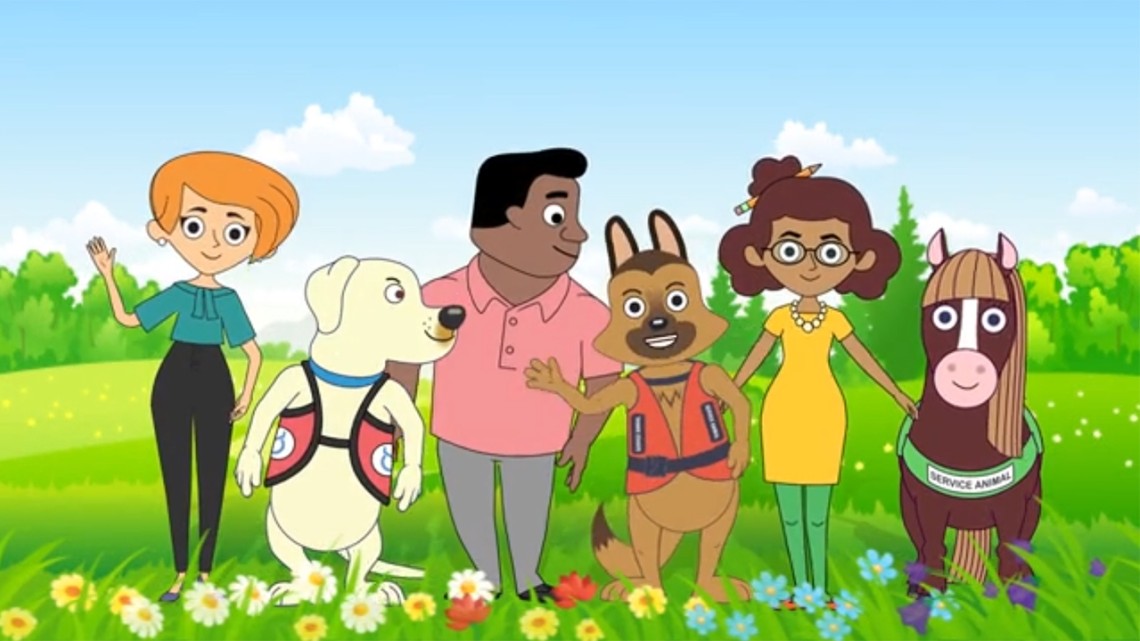
A cartoon developed by the Northeast ADA Center, in collaboration with the ILR School’s Yang-Tang Institute.
Cartoons about disability will educate children
By Amira Shimin '25
Spike is a service dog.
Roxy, a Labrador retriever service dog in training, is his friend.
Mrs. Sanders is a teacher.
Together, they will teach students in kindergarten through third grade about disabilities.
The Northeast ADA Center, in collaboration with the ILR School’s Yang-Tang Institute, is developing a 10-episode cartoon series that teaches children, their families and educators about disability issues such as assistive technology, transportation, communication and service animals.
“That age range is a good place to help children understand how their peers do things differently,” said Joe Zesski, program manager at the Northeast ADA and a project leader.
Zesski and Peter Quinn, Yang-Tan Institute multimedia editor, said they were inspired by the importance of integrating people with disabilities into community life and by the popularity of service animals. One in four U.S. households includes one or more persons with a disability, according to the 2019 American Community Survey.
As part of a five-year, $5.5 million grant from the National Institute on Independent Living and Rehabilitation Research to operate the Northeast ADA Center, the two hope to develop multiple video series and curricula over several years. They plan to release the first 10 videos by the end of August and a series of 10 videos per year for the following three years.
In three years, they plan to test their pilots in schools and in four years, to create an additional series of videos and make the final series of videos and curriculum available on the Northeast ADA website.
A project advisory panel will provide expertise on how to effectively teach children. The panel will include members from parent training information centers, disability organizations in Puerto Rico and the U.S. Virgin Islands, and the Wildwood School in Schenectady, New York.
Zesski and Quinn said their mission is to be inclusive and mindful of their vast and diverse audience. The cartoons will also be in Spanish and include audio description and closed captioning for accessibility.
Through the cartoons, Zesski said, “Young kids will become familiar with disability and have an understanding of what goes into having a disability and understand how people approach things in different ways.”
Amira Shimin ’25 is an ILR Communications student writer.
Get Cornell news delivered right to your inbox.
Subscribe
